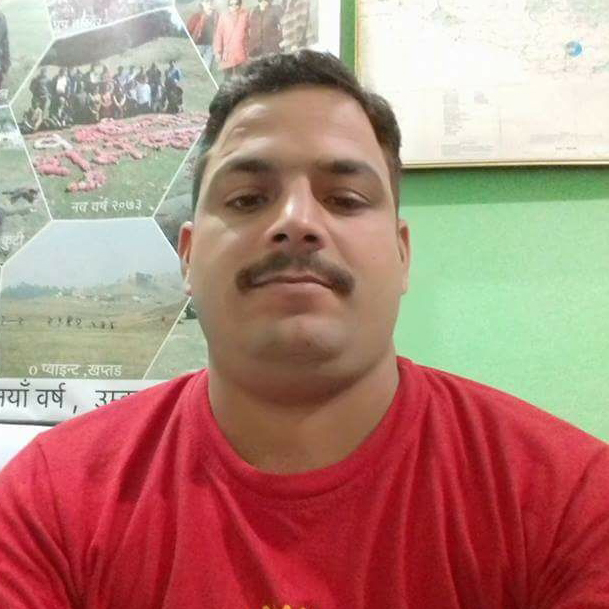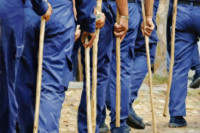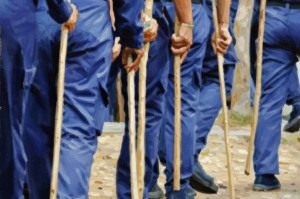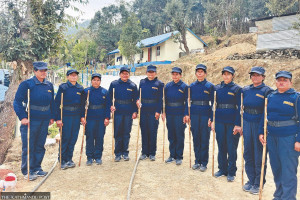Sudurpaschim Province
Nepali workers on their way home robbed in India
The Citizen Help Desk at Gaddachauki reports that five Nepalis returning home for Dashain fell victims to robbery in Haridwar last month.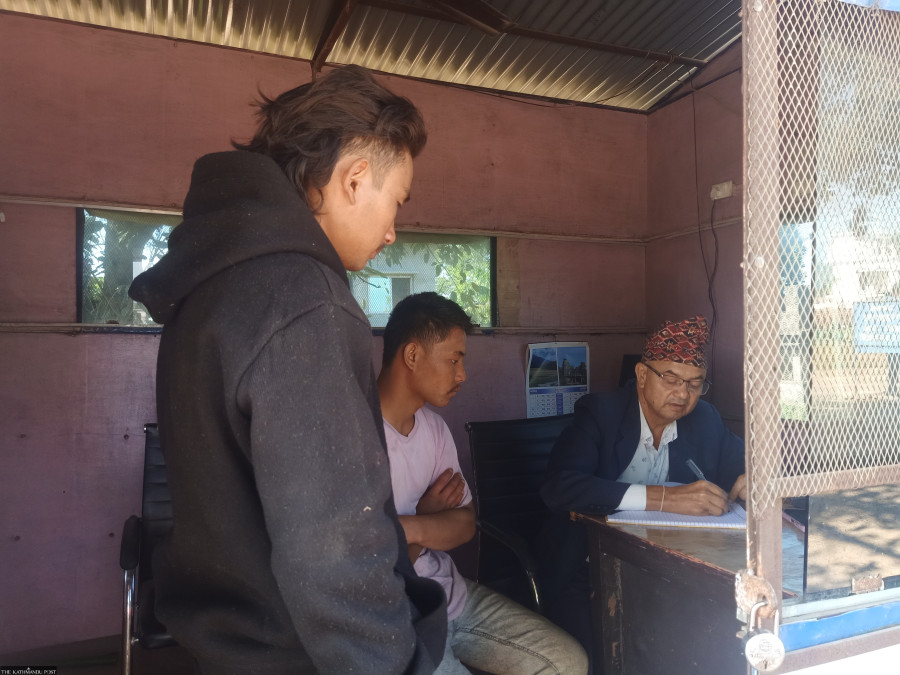
Bhawani Bhatta
Sushant Tamang, a 21-year-old man, and Dinesh Tamang, a 23-year-old man, both from Cha village in ward 7 of Punarbas Municipality, Kanchanpur, were in Leh in Ladakh in the Kashmir region of India since June 2023. The duo had gone to Leh for employment.
After about five months of manual labour, the men had saved some money and were heading home to celebrate Tihar. But the duo were robbed of their hard-earned savings in Haridwar, a city in Uttarakhand in India, before they could reach home.
According to the victims, they left Leh on October 27 and reached Haridwar three days later. They were in Haridwar to board a bus to Banbasa and then on to Gaddachauki border point in Kanchanpur.
An apparently friendly man who claimed to be a Nepali from Surkhet approached the two men and asked them to join him for tea at a nearby local restaurant, according to Sushant. “The man said he was also waiting for the same bus and that it would take a while before it arrived,” said Sushant. “We took a few sips and instantly started feeling dizzy. We seem to have fallen unconscious and when we woke up, the man was gone and so was our luggage, mobile phones and cash.”
The two men said they had around INR100,000 with them. “He stole all the cash and left us with INR520 in our pocket,” said Sushant. “The money was not enough even to reach Gaddachauki. We hitch hiked from Haridwar to Gaddachauki via Banbasa with the help of strangers. We reached the Nepali border on Wednesday.”
The unfortunate incident has left both the men in despair. “After months of hard work, we had saved some money so that we could provide for our family. Now we are returning home empty-handed with nothing to show for all the months we worked in a foreign land.”
According to Dan Singh Bohora, a non-gazetted first-class officer at the Citizen Help Desk at the Gaddachauki border point, the victims have been sent home after recording their statements.
Nepalis being robbed on their way home from various cities in India after months of hard work is not new. Every year, reports of migrant workers being robbed surface, with the victims narrating similar tales to that of the two men returning from Leh. However, the authorities concerned or the security personnel have not taken any steps to prevent such incidents.
Two days before the Dashain festival, Som Bahadur Tamang, a 45-year-old resident of Khaireni in ward 7 of Devdaha Municipality, Rupandehi, was also robbed in Haridwar. Som Bahadur also went through a similar experience.
According to Som Bahadur, he was returning home with around INR43,800 in cash and new clothes for his family. He too was approached by a stranger, who claimed to be a Nepali, to join him for tea.
“Robbery around the festive season has been happening for a while now but of late, such incidents have increased,” said Som Bahadur. “The governments of both the countries must act promptly to stop this. Nepali migrant workers have started to feel unsafe in Indian cities.”
Bohora from the Citizen Help Desk said that on Wednesday evening, another victim from Kailali district also reached the desk. He too registered a complaint stating he was robbed in Haridwar in a similar manner a couple of days ago. “Robbed Nepali migrant workers returning from various Indian cities reach the border point in miserable conditions. They hitchhike and somehow make it to the border point.”
According to the data at the Citizen Help Desk at Gaddachauki border point, five people who were returning home for the Dashain festival were robbed in Haridwar in October. Three people returning home after Dashain for the Tihar festival were also robbed in Haridwar.
“Nepal Police cannot cross over to India to investigate cases without permission from the higher authorities such as the Ministry of Foreign Affairs,” said Bohara. “So far, the help desk has only been able to offer the victims some money to reach their villages or make transport arrangements for them.”




 8.22°C Kathmandu
8.22°C Kathmandu